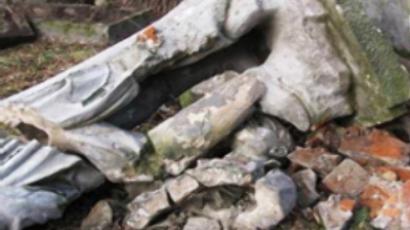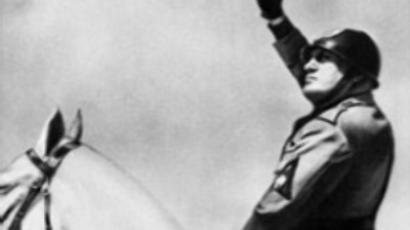Removed WWII memorial blamed for remains loss
A memorial cemetery on the outskirts of Tallinn is the new home for the so-called Bronze Soldier, the Soviet WWII memorial in Estonia. Eight of the reburied soldiers lie here, four were sent back to Russia, and one more has a grave stone. Captain Ivan Sys
She is taking the case to Strasbourg.
There are different theories as to where Ivan Sysoyev’s remains could be. One is that they were misplaced during the excavation last year. But some officials don’t believe it’s that simple.
“We don’t know how many people were buried there exactly, no one does,” Tarmo Kruusimae, from the City Council in Tallinn, said.
The so-called Bronze Soldier, the Soviet World War II memorial in Estonia, was a controversial monument, representing victory over the Nazis for some, and a symbol of Soviet occupation for others. The moving of the statue raised questions about the rights of Russians living in the country.
But no one guessed the move would provoke days of riots, looting and a death. Twenty-year-old Russian citizen Dmitry Ganin was stabbed to death, a year later no one has answered to the crime of taking his life.
Yury Juravlev is a member of Night Watch an organisation that was set up to preserve the Bronze Soldier. He took part in the protests last April. Protesters were hosed down by water canons, sprayed with tear gas and some badly beaten.
“It was a special operation. We were all arrested, anyone who was out on the streets. We were thrown on the ground and all held in a detention centre in the port,” he said.
Meantime, Russians claim they don’t have equals right in Estonia and the removal of the Bronze Soldier was the last straw after years of discrimination. But some who took part in the protests last year now say the removal has put Estonia on the right track.
“After the statue was removed problems about Russian's rights began to be resolved. They had been brewing for 17 years and now discrimination is being discussed the problem is slowly being addressed by the government,” Yury Juravlev said.














